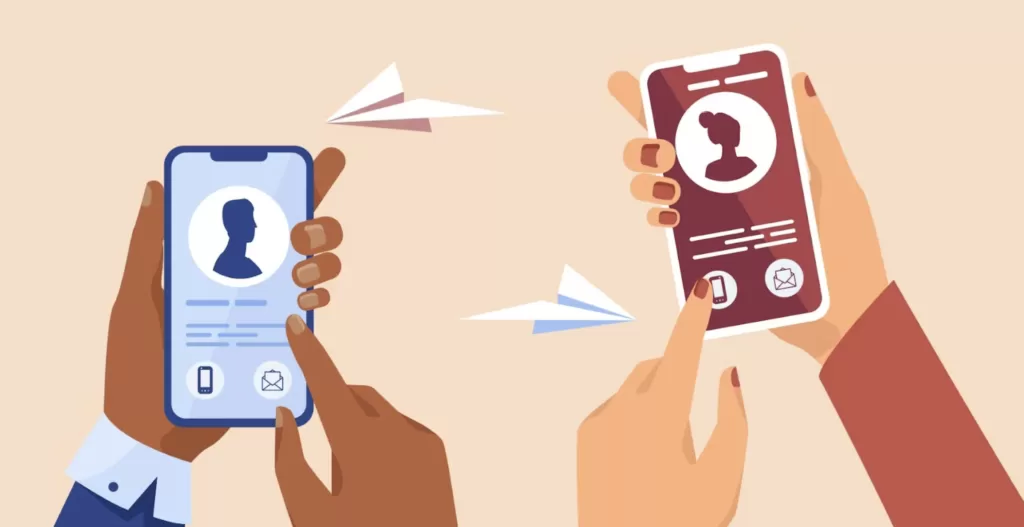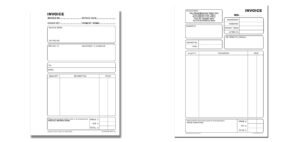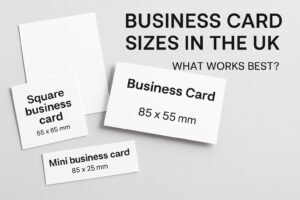Picture this. You’re at a bustling industry conference, a potential business partner approaches you, and you reach for a business card – but not just any business card. it’s digital.
Welcome to the new world of networking, where digital business cards are becoming the standard, particularly as businesses in the UK and beyond recognise the advantages of this digital pivot.
But why are these high-tech alternatives to traditional paper cards growing in popularity?
Stick around and let’s find out together how do digital business cards work?
Background
Do you remember the old ritual? The exchange of physical business cards, often over a firm handshake at a meeting or networking event?
That’s a ritual that has seen a dramatic transformation in recent years. Digitalisation has rapidly moved into every corner of our lives, and the humble business card is no exception. But this isn’t just about replacing paper with pixels.
It’s about the exciting opportunities this change brings, and how it aligns with current shifts in UK’s business practices and norms, especially following the necessity for remote interaction imposed by the COVID-19 pandemic.
Also Read: Business Card Size & Dimensions Guide UK
How Digital Business Cards Work
So, how does this digital innovation work? Let’s break it down. Digital business cards, much like their traditional counterparts, contain key contact information – name, job title, company, phone number, email, and perhaps your business’s website or your professional social media handles.
The journey starts when you sign up on a digital business card platform. Then, you choose a template from a wide variety of options, or if you’re feeling particularly creative, design one from scratch. Key in your professional information – make it engaging, make it stand out.
Next, your digital business card is ready to go. But how do you share it? There are multiple ways: you can send it via email or text message, share a link, or use a QR code or NFC technology if your recipient is physically near. It’s your networking prowess – fast, efficient, and flexible.
Recipients can then open your digital business card on their device and save your details straight to their contacts. You’ve just made a connection – no paper, no fuss, just seamless digital interaction. Importantly, these platforms take data security seriously, encrypting your information to keep it safe and sound.
Key Features of Digital Business Cards
The beauty of digital business cards lies in their features, going beyond just contact information.
You could integrate your social media profiles, your portfolio, even videos introducing yourself or your business. This interactivity isn’t possible with a piece of paper.
And what about sharing? You can make use of QR codes or NFC technology, letting people simply scan or tap to access your card, even in a face-to-face setting.
Want to organise your contacts? No problem – these cards can integrate with popular CRM platforms, making your networking more efficient.
Benefits of Digital Business Cards
Sure, digital business cards save trees, but the benefits don’t stop there. They’re also cost-effective – after all, updating a digital card doesn’t involve any printing costs.
And with the ability to share them virtually, your network is no longer confined to the people you meet physically. Plus, they offer a level of interactivity that’s simply impossible with traditional cards – clickable links, embedded maps, or even direct integration with video call platforms.
Impact of Digital Business Cards in the UK
Digital business cards have made quite a splash in the UK business scene. From Manchester’s tech startups to London’s creative agencies, this versatile tool is redefining professional networking. But remember, with great power comes great responsibility.
All digital business cards should comply with the UK’s data protection regulations (GDPR), ensuring that personal information is handled with due respect and security.
Challenges and Potential Drawbacks of Digital Business Cards
Of course, no technology is perfect, and digital business cards have their own share of challenges. Access to the necessary tech tools to create or receive digital cards might be limited for some, highlighting the issue of the digital divide.
And then there’s the reliance on technology – after all, technical glitches and cyber threats are real concerns.
The Future of Digital Business Cards
Technology is always evolving, and digital business cards will continue to ride that wave. Looking ahead, we might see even more innovative features like augmented reality overlays or AI-powered networking suggestions.
The UK, already a digital leader, stands to benefit immensely from these advancements. The business cards of the future aren’t just going to be digital – they’ll be smarter, more interactive, and even more immersive.
To wrap things up, digital business cards are more than a passing trend. They’re a vital tool in today’s digital world, offering an effective, sustainable, and innovative way to network.
As we move forward into this exciting digital era, it’s definitely worth considering swapping your old stack of paper cards for a dynamic, digital version.
















